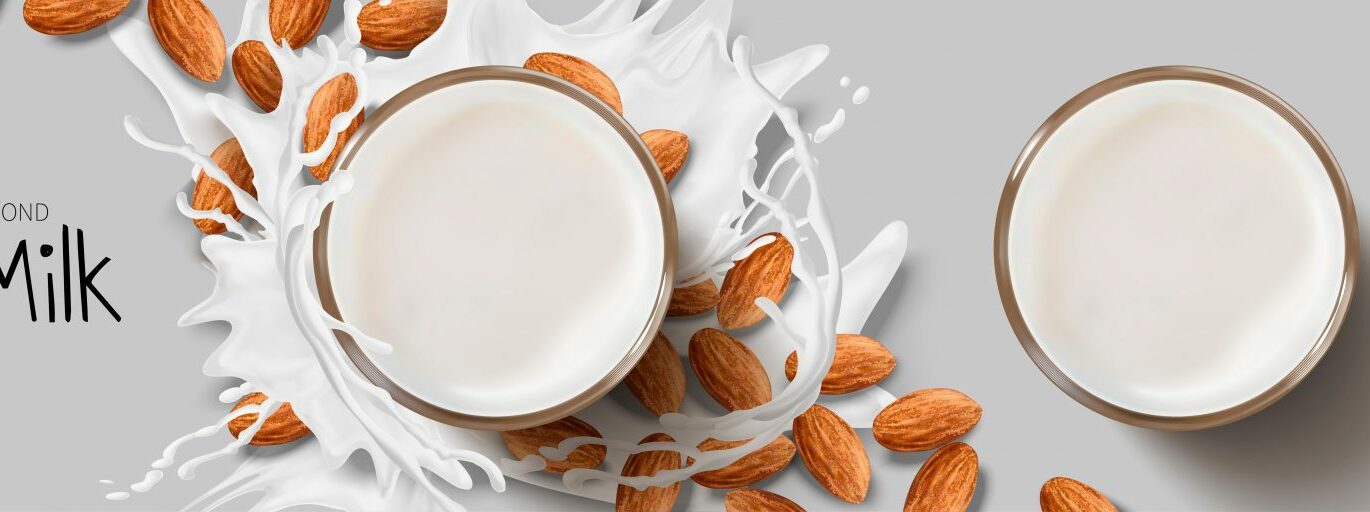


Diabetes is a chronic disease that affects millions of people worldwide. It is characterized by high blood sugar levels, which can lead to a range of complications if left uncontrolled. Managing blood sugar levels is crucial for people with diabetes. One aspect of diabetes management is choosing the right foods and beverages. In recent years, almond milk has gained popularity as a dairy-free alternative to cow’s milk. But is almond milk good for diabetes? In this article, we will explore this topic in detail.
Almond milk is a plant-based milk made by blending almonds with water and straining the mixture to remove the solids. Almond milk is naturally lactose-free and low in calories. It is also rich in nutrients such as vitamin E, calcium, and potassium.

Yes, almond milk can be a good option for people with diabetes. Here are some reasons why:
Almond milk is naturally low in carbohydrates, making it a good option for people with diabetes who need to watch their carbohydrate intake. One cup of unsweetened almond milk contains only 1-2 grams of carbohydrates. This is much lower than cow’s milk, which contains around 12 grams of carbohydrates per cup.
The glycemic index (GI) is a measure of how quickly a food raises blood sugar levels. Foods with a high GI can cause blood sugar levels to spike, while foods with a low GI have a more gradual effect on blood sugar levels. Almond milk has a low GI, meaning it does not cause a sharp increase in blood sugar levels. This makes it a good option for people with diabetes who need to manage their blood sugar levels.
Almond milk is high in healthy fats, including monounsaturated and polyunsaturated fats. These fats can help improve insulin sensitivity and lower blood sugar levels. In addition, the healthy fats in almond milk can help improve cholesterol levels, which is important for people with diabetes who are at an increased risk of heart disease.
Many commercial brands of almond milk contain added sugars, which can cause blood sugar levels to spike. However, unsweetened almond milk does not contain any added sugars. This makes it a good option for people with diabetes who need to manage their blood sugar levels.
Almond milk is rich in nutrients such as vitamin E, calcium, and potassium, which are important for overall health and diabetes management. Vitamin E is an antioxidant that helps protect cells from damage, while calcium is important for bone health. Potassium helps regulate blood pressure and can reduce the risk of heart disease.
The increasing popularity of consuming nondairy milks can be due to many factors
Almond milk and cow’s milk have their own benefits and pitfalls.
Cow’s milk is rich in protein and fat, whereas Almond milk is low in protein but has good sources of fats. Studies show that the benefits of almond milk are that you are getting your fats from a healthier source unlike your cow’s milk which has saturated fats. Almond milk also contains good sources of vitamins like Vitamin A, Vitamin D, Vitamin E, Potassium, Magnesium and calcium.
Yes, as you can see almonds are nutri dense nuts with excellent nutrient profile. Snacking on 5-10 soaked nuts per day helps one reduce symptoms of diabetes.
Yes, studies show that daily almond consumption helped improve glycemic control and lipid parameters in people with type 2 diabetes.
No, almond milk has low glycemic index. They are low in carbohydrates and rich in fats and protein, therefore they does not shoot your blood glucose levels rapidly.
Yes, almond milk is a good source of monounsaturated fats (MUFA) and polyunsaturated fats (PUFA) that reduce your bad cholesterol (LDL) and improve your good cholesterol (HDL).
The quality of almond milk depends on where you make it. I always prefer homemade almond milk, as commercial almond milk can contain a lot of sugar which can be detrimental for diabetic individuals.
Yes, almond milk has low glycemic index which helps you feel satiated for a long time thereby reducing your cravings for food which is helpful in weight management.
In summary, almond milk can be a good option for people with diabetes. It is low in carbohydrates, has a low glycemic index, and is high in healthy fats. Additionally, unsweetened almond milk does not contain any added sugars and is rich in nutrients. However, it is important to read the label and choose unsweetened varieties to avoid added sugars. As with any food or beverage, moderation is key, and it is always best to consult a healthcare provider or registered dietitian before making any significant changes to your diet.
Read Also:
Dry fruits for Diabetes: Get to know them better
Mango Good for Weight Loss? Separating Fact from Fiction